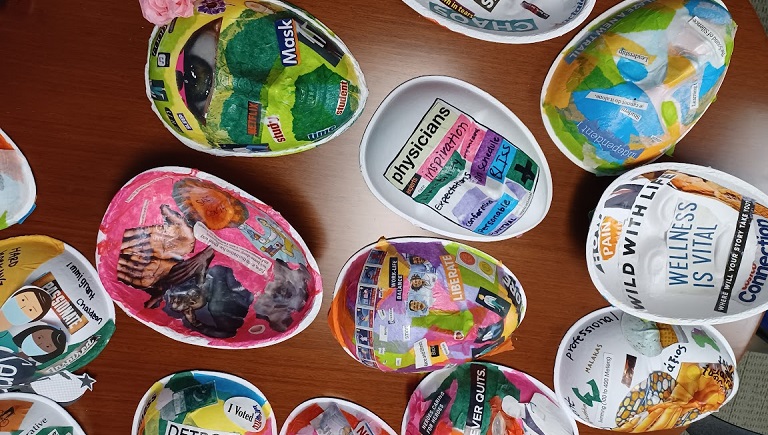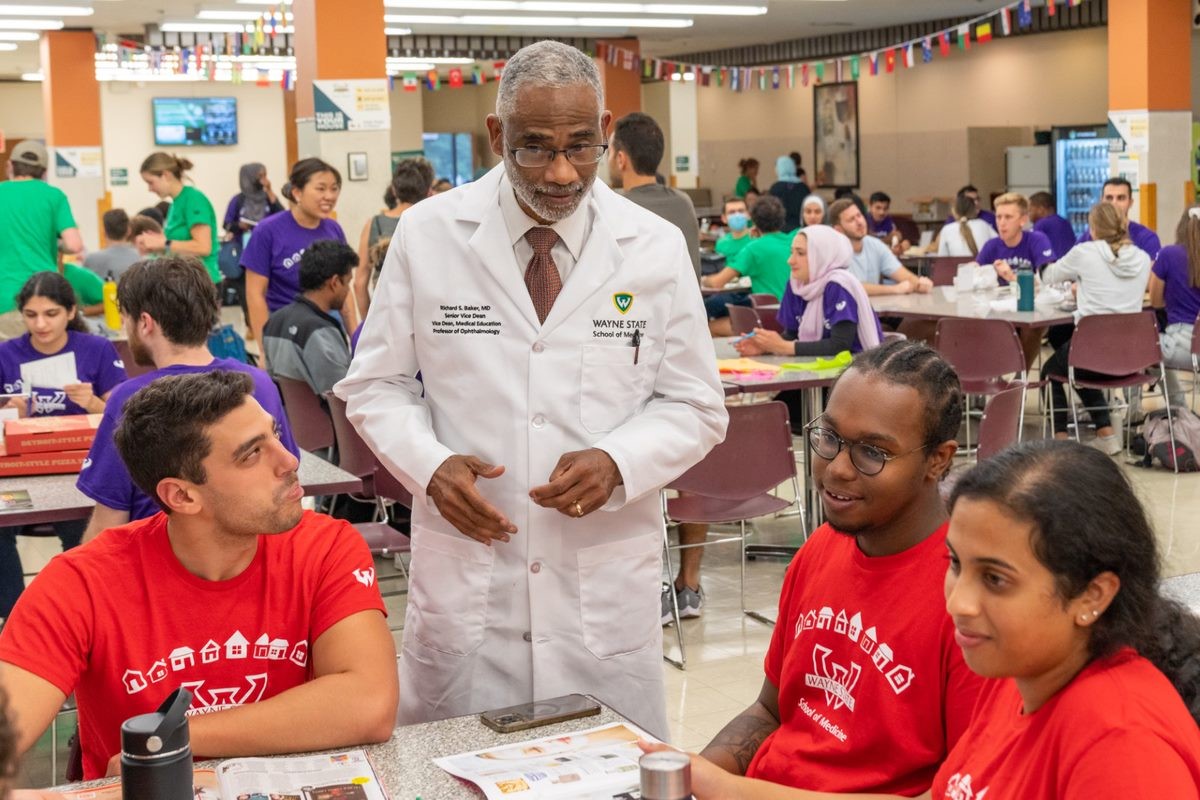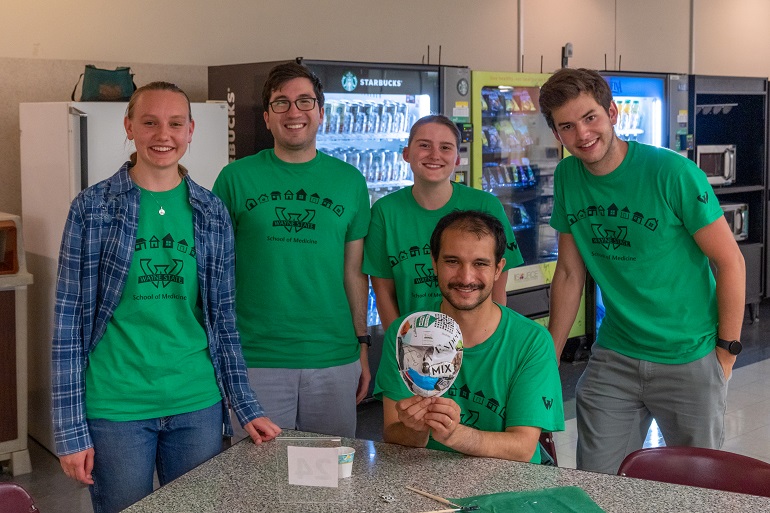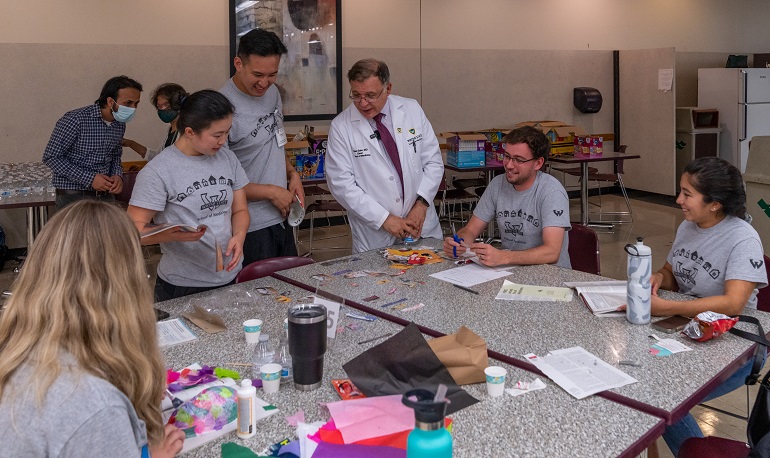
The Wayne State University School of Medicine’s Warrior M.D. Class of 2026 participated in a service learning project focused on thinking about the formation of their professional identities as they navigate the next four years of medical school.
The activity was held Aug. 3 in the school’s Scott Hall Cafeteria. Another session is planned for Aug. 24 at 5:30 pm in the cafeteria.
The Service Learning Project was directed by Associate Professor Emeritus Jennifer Mendez, Ph.D.; Co- Director of Service Learning Seg 1A Rima Charara, Pharma D.; and Atta Illahi, project coordinator. Class of 2023 university counselor Jennifer Crystal, Ph.D. led the students, to share through discussions, how their identities impact biases. Wayne State Art Collection Curator Grace Serra, demonstrated to students how masks have been used to aid humans in dealing with important life-changing events, and how they reflect the concepts of self. The students were shown works from the Wayne State University Art Collection to learn how culture and masks from Africa, Polynesia and Mexico define identity.

“This mask-making project was far more than a craft project. Its intention was to help students begin think about their own identities as future physicians and to develop awareness of implicit bias,” Serra said. “I was thrilled to have had the opportunity to feature artworks from Wayne State University’s art collection that connected so well to this project.”
The activity was inspired by “Examining Professional Identity Formation Through the Ancient Art of Mask-Making,” a 2019 article in the Journal of General Internal Medicine about a similar mask-making curriculum as a form of reflective expression. Using dedicated prompts, students at Penn State University School of Medicine used a blank papier-mache mask to create a representation of their sense of self in the broader context of medical education.
At Wayne State, the medical students, working in groups, used magazines, art supplies and a blank white mask to design the inside masks to show their personal fears, uncertainties and biases. The outside of the mask focused on what others see when interacting with them.

“Others may see us as ‘resilient,’ ‘strong,’ ‘worthy,’ ‘smart’ and having ‘determination,’ but we too are human and are left feeling like an imposter at times as a result of this facade we carry when we hit our lows,” said Angelica Cabatu, a member of the class of 2026. “I believe that versing this now in our training will help us remember later on that our patients too will have this mask which we must be cognizant of to meet their needs as both a patient and as a human being.”
The project outlined in the journal article proved to be a safe and engaging way for students to explore their developing sense of self within the community of medical practice. A similar reaction was received at the WSU School of Medicine.
“This event served as a lesson to me that there are two faces to a medical student, or to anyone for that matter, when we were given the task to create a mask that represents how others may perceive us on the outside and what we do not necessarily portray to others on the inside,” Cabatu added. “As a team activity, we discussed among each other what we should put on both sides. To my surprise, I found an odd sense of comfort that others in my group hide the same weaknesses as me. To know that we all at one point, or multiple points, have cried from feelings of ineptitude or experienced stress from our training thus far that has led us to question why we chose this journey reminded me that we are not alone in these sentiments, despite what we portray on the outside.”
